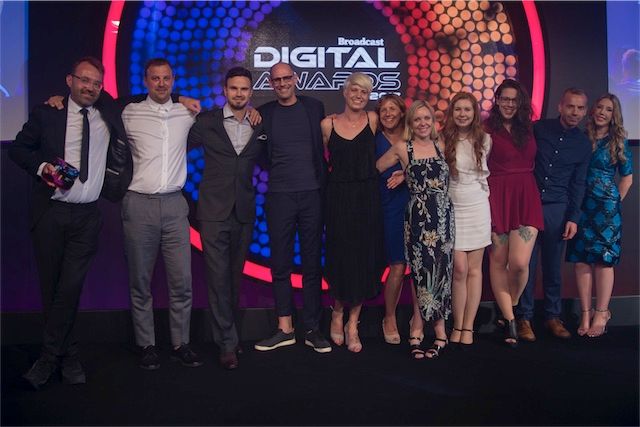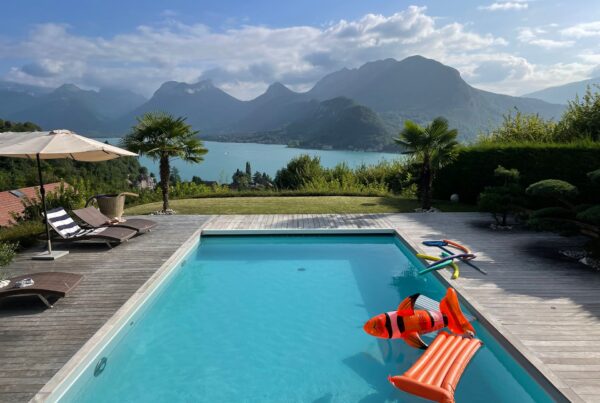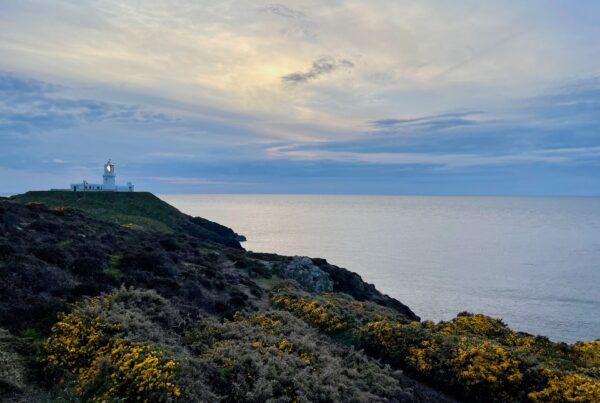I’m a jack of all trades.
Which means, I can do a little bit of a lot of different things.
I have a huge interest in learning about exciting new stuff. But I get bored after a while and my attention is easily turned to shiny new skills.
From operating a digger on the farm to playing bass in a band, shooting photo essays for newspapers to making television documentaries – I have accomplished all of those things.
But my inner truth is that I’ve never become excellent at any of them.
This trait is often portrayed negatively – and that is certainly how I saw it back in my 20s.
When I was a freelance photographer, this was a source of shame for me. I thought that being really good at one thing was the pinnacle of professional achievement.
I watched a succession of peers thrive, becoming masters of their art, award winners, and the best in their game.
I was in awe of their focus, determination and remarkable skill.
People like Mark Leech, one of the world’s best-ever football photographers.
Mark’s ability to tell an incredible sporting story through just a single emotive photograph is unrivalled. He fills me with respect and admiration.
For writers like Elizabeth Day, it’s the remarkable ability to transform a seemingly straightforward newspaper story into a piece of remarkable prose.
I got the same realisation when I went to Paris to watch Rafa Nadal play in the French Open. Just a tennis genius, in his natural home, winning relentlessly – 100% focused.
So the fact that I became average at a string of mini-careers – producing music, picture editing and researching, and video production; I just felt like an impostor.
My amazing freelance peers were always the first pick of the buyers. They knew that they could depend on that person who was the best in the business to deliver exactly what they wanted to buy.
As a freelancer, I only ever got a call if those top boys and girls were unavailable.
It wasn’t great for my ego.
But, I’ve since learned that being a Jack of all trades is a key attribute of becoming a successful entrepreneur.
When I started to transition from being a freelancer to growing a business, my personality went from being a professional constraint to becoming an advantage.
As a freelancer, you are the one who actually does the work.
But:
As an entrepreneur, your job is to grow a business by leveraging the work of your team.
So, my natural inquisitiveness for new things was really helpful when I had to figure out how to rent an office, set up systems for my small team, figure out how I would pay everyone, and spend time selling other people’s skills and work.
I was happy to learn a little bit about HR, Business Leadership skills, sales strategy, accountancy and IT.
And my interest in multiple forms of storytelling meant that our business was able to have more than one product or service – growing from a photo agency into a press agency, into video production and then television, and finally becoming a social media publisher.
We ended up growing a multi-faceted small business that played across multiple areas of the media rather than a company that was brilliant at solving a single problem.
Which built us into being a well-liked, very good small agency.
However, when we needed to grow from being a small company to a medium-sized company (from £2-10m revenue a year to £10m+), being all things to all people – “the media industry’s secret weapon” – stopped working.
We couldn’t grow.
And it took a long time and a lot of learning to realise that there was a simple reason.
When we met new people, they couldn’t place us:
“What is it exactly that you do again?“
“Are you the people that make videos? Or TV shows? Are you a press agency? Don’t you do PR? are you other people that do medical documentaries?
Well, we did all of the above. But we weren’t the biggest or best at any of them.
If we had time in person with clients, this was never a problem for long. We found ways to do business with lots of different companies in lots of different ways.
But, when attempting to scale, it became obvious that instead of enabling us, a lack of clarity around the business was holding us back.
If you want to grow bigger, you can’t be bespoke – you have to have name recognition so people call you. A bit like being the best freelancer at a particular skill.
You need to become known as the best in the business for one thing. The Number One.
As a founder, you can quickly become the bottleneck.
This happens to lots of companies. Especially when they’ve successfully created a multitude of different skill sets.
It’s especially apparent with TV production companies. Lots of good producers end up making a variety of different types of shows to keep the lights on. But this isn’t a great strategy if you want to scale effectively.
As a small business you’re able to solve lots of different problems can be a huge asset. Your flexibility, adaptability, and energy levels set you apart from bigger, sluggish businesses.
This makes you super helpful to slower, large companies that want a secret Swiss Army Knife solution to quickly solve their unique, complex problems.
But we wanted to move on from there – to scale and sell our business.
And we realised that to achieve a good sale, buyers would need to understand that we were the best in the world at one simple thing.
Eventually, we stopped worrying about failing and decided to figure it out.
We laid out all the things we were good at and all the opportunities we had in front of us.
We analysed the opportunities in front of us and prioritised the ones that we felt would best grow our company and position our business.
We realised that our unique mix of skills didn’t fit into an existing category. We weren’t a press agency, a production company, a creative agency, or a publisher. We were all of the above.
It was a hard moment. Feeling like you don’t fit in an established bucket is terrible.
And then, I across Blue Ocean Strategy.
I realised that our opportunity was to create our very own vertical – and then become the best in the world at it.
We had developed a unique way of funding our documentary production that enabled us to then commercialise our content in many more ways than other producers.
And when I searched around the media landscape, the only similar model I could find was that of the Hollywood Movie Studio.
Those amazing, huge entertainment businesses operated at 100x our scale, but in a similar model:
Identify an unmet viewer need
Independently finance the creation and production of original content
Distribute the content in a sequence designed to extract maximum value by leveraging control of multiple marketplaces over time
Collect and analyse proprietary performance data
Reinvest in the next opportunity
At that time we had multiple small divisions that each did different things:
Barcroft Media: Digital press agency
Barcroft TV: Social media channels
Barcroft Productions: TV production company
Barcroft Plus: Creative agency
But with my new realisation about our model, and our deep desire to become the best in the world at one thing, to own our vertical, we decided to change everything.
We created a simple brand that brought together all our existing proficiencies and collated them into a single offer: Barcroft Studios.
Barcroft Studios was the best Digital content studio in the world. The Number One.
We still delivered amazing news stories to news publishers. We were still one of the top news publishers on social media. We still made huge TV shows for global broadcasters and streamers. And we still helped brands tell their stories.
But now, we could explain our model simply – we were the first – and best – digital content studio.
We announced our rebrand in January 2019.
And we worked very hard with the team to simplify our internal workings around this new identity.
The best thing? Customers got it. They understood. And so did our brilliant team.
And at that point, I now realise I went from being a Jack Of All Trades to becoming a proper entrepreneur.
We scaled the business very well at that point, becoming highly profitable, and then sold to Future PLC just 10 months later.
Looking back – I realise I’m now comfortable being a Jack Of All Trades. Instead of holding me back forever, it was an invaluable skill set that allowed me to transition from being a freelancer to running a business.
And now, I’m enjoying doing several different things again.
So – don’t worry about being different. Just work out how being you can work best.



